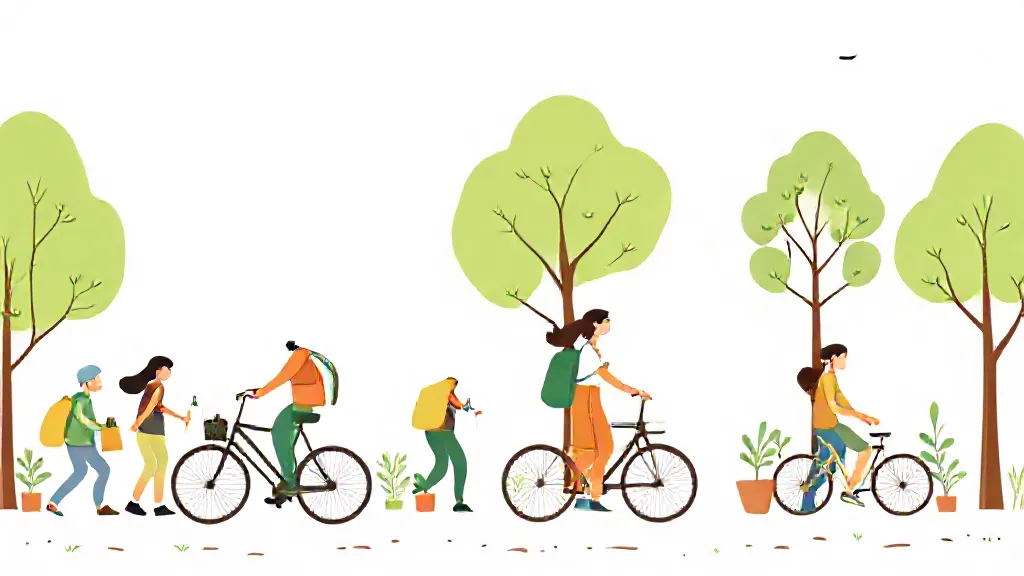In an era where climate change and environmental degradation are at the forefront of global concerns, the notion that small changes can lead to significant environmental impacts has gained traction. This article delves into how individual actions, when multiplied across communities, can create a ripple effect that contributes to a healthier planet.
The Ripple Effect of Individual Actions
The concept of the ripple effect suggests that small actions can lead to larger consequences.
For instance, when individuals choose to reduce their plastic consumption, they not only decrease their waste but also inspire others to do the same. A study published in the journal "Environmental Science & Technology" highlights that reducing single-use plastics can significantly cut down on ocean pollution, which affects marine life and ecosystems. This demonstrates how individual choices can create a broader societal shift towards sustainability.
Energy Conservation: A Collective Impact
Energy conservation is another area where small changes can lead to substantial benefits. Simple actions, such as turning off lights when leaving a room or using energy-efficient appliances, can cumulatively save vast amounts of energy. According to the U.
S. Department of Energy, if every American household replaced just one incandescent light bulb with an ENERGY STAR® qualified bulb, the reduction in greenhouse gas emissions would be equivalent to taking 1 million cars off the road for a year. This example underscores the power of collective action in energy conservation.
Sustainable Transportation Choices
Transportation is a significant contributor to greenhouse gas emissions. However, by opting for public transport, carpooling, biking, or walking, individuals can reduce their carbon footprint. The Environmental Protection Agency (EPA) states that transportation accounts for nearly 29% of total greenhouse gas emissions in the U.
S. By making conscious choices about how we travel, we can collectively diminish this impact. A city that promotes cycling and walking can see a notable decrease in traffic emissions, showcasing the potential of small, individual transportation choices.
The Role of Dietary Changes
Dietary choices also play a crucial role in environmental sustainability. Adopting a plant-based diet or reducing meat consumption can significantly lower an individual's carbon footprint. The Food and Agriculture Organization (FAO) reports that livestock production is responsible for about 14.
5% of global greenhouse gas emissions. By choosing to eat less meat, individuals contribute to a demand for more sustainable food systems, which can lead to reduced environmental degradation and improved health outcomes.
Waste Reduction and Recycling Efforts
Waste management is another area where small changes can have a big impact.
Simple practices like recycling, composting, and reducing food waste can significantly lessen the burden on landfills. According to the Environmental Protection Agency, food waste is the single largest category of material placed in municipal landfills. By making a conscious effort to reduce food waste at home, individuals can contribute to a more sustainable waste management system, ultimately leading to lower methane emissions from landfills.
Community Engagement and Grassroots Movements
Community engagement plays a vital role in amplifying individual actions into collective movements. Grassroots organizations often start with a few passionate individuals advocating for change. For example, the rise of community gardens has not only provided fresh produce but has also fostered a sense of community and environmental stewardship.
These initiatives highlight how small, localized efforts can grow into significant movements that inspire broader societal change.
Education and Awareness as Catalysts
Education and awareness are crucial in driving small changes towards significant environmental impacts. Informing individuals about the importance of sustainability and the impact of their choices can empower them to take action.
Programs that promote environmental literacy in schools and communities can lead to more informed citizens who are motivated to make eco-friendly choices. The more people understand the consequences of their actions, the more likely they are to adopt sustainable practices.
Conclusion: The Power of Collective Small Changes
In conclusion, the potential for small changes to lead to big environmental impacts cannot be overstated.
Each individual action, when multiplied across communities, has the power to effect significant change. By embracing sustainable practices in our daily lives, we contribute to a more sustainable future. The journey towards environmental sustainability begins with small, conscious choices that can inspire others and create a positive ripple effect throughout society.
